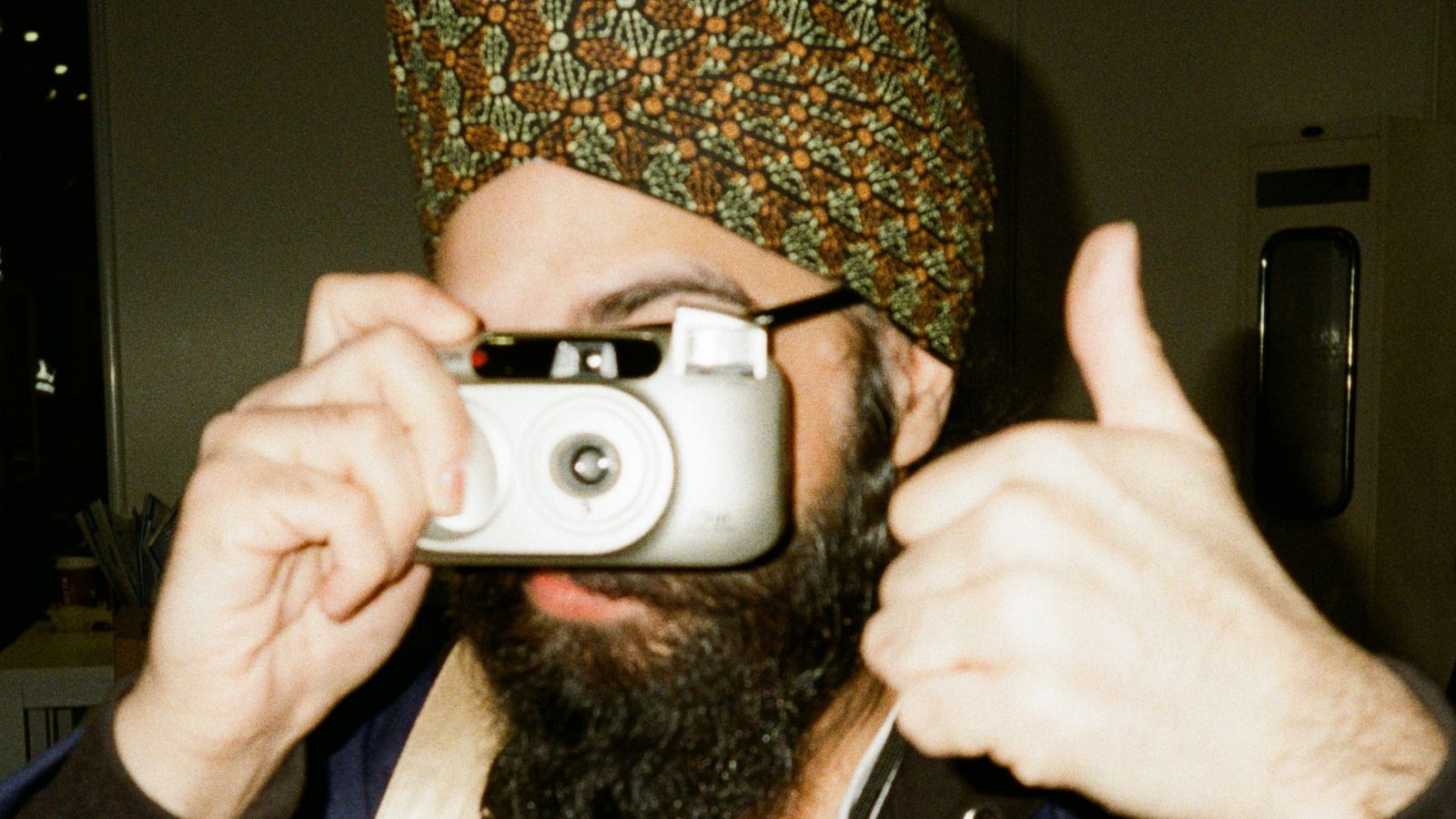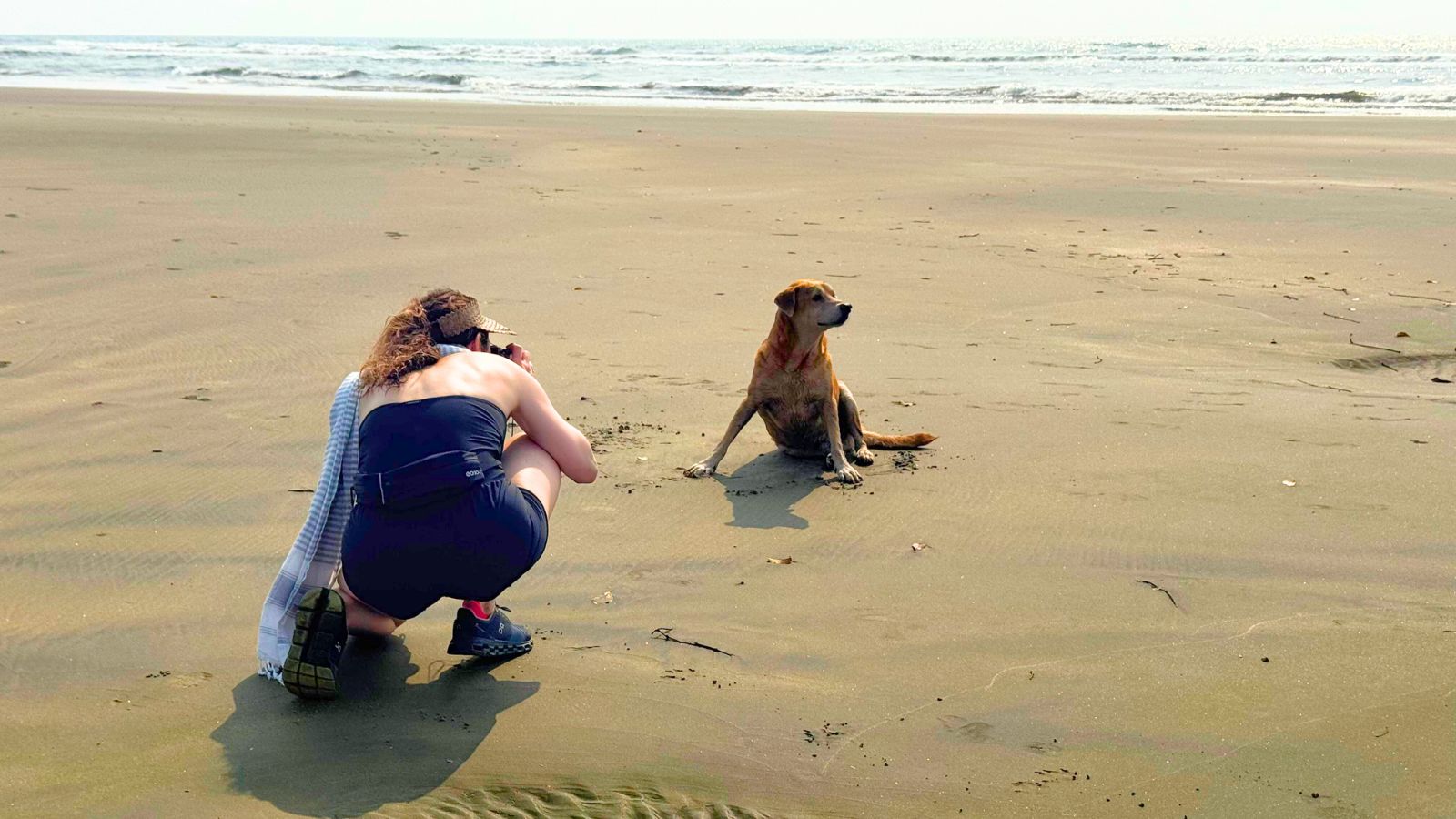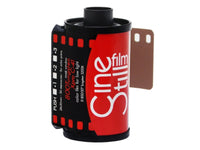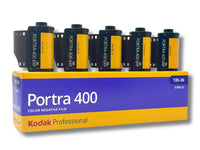
Wedding Photography: Should You Shoot on Film, Digital or Both?
By Amy Farrer
It has become a hot topic, and has divided opinions - should you go for a film photographer for your wedding, or a digital one? Or perhaps you should choose one that can do both? Like in other aspects of your wedding planning, it can depend on a few factors… Let’s get into it!
Header image captured on CineStill 800T 35mm film with the Leica M6. (c) Words and images by Ben Gilholm.
Film vs digital: Analysing the risks
I am very much a film wedding photographer, but I try not to lean on the ‘film’ aspect too much. I prefer to say that I am a wedding photographer, I just happen to use film. There can be a few things to think about from either side; some people will say that there is a risk with film, that your pictures may not turn out. Of course, that could be a possibility, but if your photographer knows their equipment and how to properly expose film for the look they are trying to achieve, then that is a very minimal risk.
Having to get your film developed can also be a risk, but again, knowing how to do this properly, or in my case, knowing your film lab and having them prove time and again that they know what they are doing will minimise that risk as well.
Digital is not without risk in itself; what if a memory card corrupts, or gets lost/damaged? What if the files get damaged when transferring onto your PC? As with film, knowing your equipment and taking steps to minimise this risk means that realistically this doesn’t happen very often, and for some photographers, never at all.
And what about the people that offer both digital and film in one package? Well, imagine seeing your images and wishing that all of them were one or the other?
But having all these choices can only really be positive. Everyone is different, every wedding is different, so the more options available the better. So let's dive into why you may want to choose one over the other, or perhaps even both…

(c) Ben Gilholm, taken on Kodak Portra 400 35mm film with the Pentax K2.
Why shoot film at weddings?
Film wedding photography offers a timeless, organic look with rich tones, soft highlights, and a natural grain that can’t quite be replicated digitally. Each frame is more intentional, encouraging both photographer and couple to slow down and savour each shot. Many couples are drawn to film because it feels nostalgic and artistic, with an aesthetic that ages gracefully—perfect for creating wedding albums that feel classic and enduring. Film also handles light in a unique way, producing dreamy colours and depth, especially in natural settings or golden hour portraits.
Why shoot digital at weddings?
Digital wedding photography, on the other hand, is known for its flexibility and efficiency. It allows photographers to shoot a much larger number of images, experiment freely, and make adjustments on the spot. With digital, you can see results instantly, which is reassuring for both the couple and the photographer. It’s also incredibly versatile in post-production, making it possible to edit and retouch images in countless styles, from light and airy to dark and moody. Couples who prefer a modern, polished look often lean toward digital. Ultimately, the choice comes down to personal preference: film for artistry and timelessness, digital for convenience and adaptability.

(c) Ben Gilholm, taken on Candido 800 35mm film with the Pentax K2.
My personal experience
I myself have only ever shot weddings on film. I have been asked to shoot digital, but I will always turn it down. And that leads us to the next point… your photographer. I have been fortunate to work with some amazing photographers, both film and digital, and I follow quite a few others that I really admire. There are some fantastic people out there, in every price bracket, and every style to suit anyone’s needs. So have a look at a few websites/socials/etc.. and speak to a few photographers, the one for you should make you feel comfortable, confident in their abilities, and in love with their work.
Film at weddings: debunking the myths
There are some other things with film photography to address; although most people will agree that it does slow you down and make you think more about each shot you are taking, that doesn’t mean you will miss the spur of the moment shots. The best photographers can see a moment developing and be ready for it, that is true of all great photographers, both film and digital, and if they know their camera well enough, they will know exactly how to capture it, and quickly.
The other myth that tends to come up with film is that the pictures are usually out of focus. I think this comes from the fact that most people are more likely to accept imperfect photos when they are taken on film, and they can add to the character. The old saying goes; ‘the only bad photo is the one you didn’t take’ and that is incredibly true, I would rather have an image of a moment or a person that is out of focus than no picture of them at all. But that doesn’t mean all film photos will be like that. A lot of film shooters that I know use cameras with autofocus and other modern functions, they just happen to shoot onto film rather than a digital sensor. Personally, I prefer to use fully manual, vintage, film cameras, and most of my pictures are perfectly in focus.
Talking about vintage cameras, this leads me on to my last point; it gets people interested... The amount of guests that talk to me about my cameras, and film in general is huge, and I absolutely love it - I could talk about it for days. More often than not I will let people have a go with them, and let them get their own pictures. It’s such a great feeling when the bride and groom use my 1956 Yashica TLR to take a picture of each other, and it gets more people talking about film and photography in general. What could be bad about that?

(c) Ben Gilholm, taken on Kodak Portra 800 35mm film with the Leica M6.
Ultimately, my advice would be; don’t get bogged down with the digital/film debate. The camera is just a tool and the editing is a style. There are pros and cons and risk and reward, regardless of which you go for.
(c) Words and images by Ben Gilholm.
Ready to dive in?
Keep Reading
View all
Analogue Adventures: "Halation Harry" in Oslo 😅
Enjoy some beautiful imagery, powerful inspiration, and amazing halation courtesy of Harry Ma and Cinestill 800T...

The new series: Analogue Adventures
Submit your personal Analogue Adventure - and if chosen we will work together to turn your experience into an article on our site and social posts on our account for posting with the analogue community!

Analogue Adventures: Nic in India
The first in our new series of community articles, find out how film photographer Nic got on with a Pentax 17 camera in India!
Subscribe to our newsletter 💌
Sign up for our newsletter to stay up to date on film photography news, sales and events:
Free Tracked Shipping
On all UK orders over £50
Passion For Film
An unbeatable range and an on-site lab
Our Customers Trust Us
Thousands of independent 5* reviews
All Deliveries are Carbon Neutral
Independently audited and verified by Planet
- Opens in a new window.






